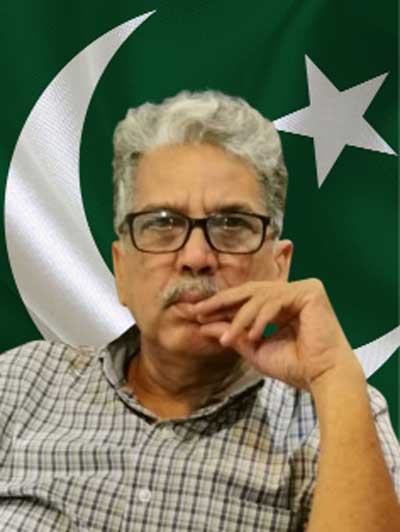Muhammad Ali Jinnah, the founding father of Pakistan, was a visionary leader whose words continue to resonate with us today. One of his most profound statements, often quoted for its wisdom and clarity, is:
“We have undoubtedly achieved Pakistan, and that too without bloody war, practically peacefully, by moral and intellectual force, and with the power of the pen, which is no less mighty than that of the sword and so our righteous cause has triumphed. Are we now going to besmear and tarnish this greatest achievement for which there is no parallel in the history of the world? Pakistan is now a fait accompli and it can never be undone, besides, it was the only just, honourable, and practical solution of the most complex constitutional problem of this great subcontinent. Let us now plan to build and reconstruct and regenerate our great nation.”
This quote encapsulates the essence of Jinnah’s leadership and his unwavering belief in the power of peaceful struggle, moral integrity, and intellectual prowess. It is a reminder of the incredible achievement that Pakistan’s creation represents and a call to action for the nation’s future.
The Power of Moral and Intellectual Force
Jinnah’s assertion that Pakistan was achieved without a bloody war, but through moral and intellectual force, highlights the unique nature of the struggle for independence. Unlike many other nations that gained freedom through violent revolutions or protracted wars, Pakistan’s creation was the result of a sustained intellectual and moral campaign. Jinnah, a lawyer by profession, used his legal acumen, eloquence, and unyielding commitment to the cause of Muslims in India to argue for a separate homeland. His leadership was not marked by violence but by the force of his ideas and the conviction with which he pursued them.
The reference to the “power of the pen” as being “no less mighty than that of the sword” is a powerful metaphor. Jinnah believed that the written word, persuasive arguments, and reasoned debate were more potent weapons than physical force. His success in creating Pakistan is a testament to the fact that peaceful, intellectual discourse can indeed triumph over violence and coercion.
The Achievement of Pakistan: A Historical Milestone
Jinnah’s statement that the achievement of Pakistan has “no parallel in the history of the world” is not an exaggeration. The creation of Pakistan was unprecedented in many ways. It was the first time a country was established based on the principle of religious identity in such a significant and complex geopolitical context. The successful partition of India and the peaceful creation of Pakistan was an extraordinary feat, especially considering the deeply entrenched opposition from various quarters.
This achievement was not merely a political victory; it was a moral and intellectual triumph. Jinnah and his colleagues in the All India Muslim League faced immense challenges in convincing both the British rulers and the Indian National Congress of the necessity of a separate Muslim state. Yet, through strategic negotiation, legal arguments, and the mobilization of public opinion, they succeeded in making Pakistan a reality.
Pakistan: A Just and Practical Solution
Jinnah’s description of Pakistan as “the only just, honourable, and practical solution” to the constitutional problems of the subcontinent is a reflection of his deep understanding of the complexities involved. The demand for Pakistan was not rooted in narrow nationalism or sectarianism but in the recognition of the unique socio-political and religious identity of Muslims in India. Jinnah saw that the Muslims of India needed a separate homeland where they could live according to their beliefs, free from the domination of the Hindu majority.
The creation of Pakistan, therefore, was not just a political expedient; it was a solution that respected the rights and aspirations of millions of Muslims. It was a solution that upheld the principles of justice and honour, ensuring that the future of Muslims in the subcontinent was secure.
The Call for Nation-Building
While Jinnah’s quote celebrates the achievement of Pakistan, it also serves as a stern warning against complacency. His rhetorical question, “Are we now going to besmear and tarnish this greatest achievement?” challenges us to reflect on our responsibilities as citizens of Pakistan. The creation of the nation was not an end in itself but the beginning of a new journey. Jinnah urges us to “plan to build and reconstruct and regenerate our great nation,” emphasizing that the work of nation-building is an ongoing process.
This call to action is as relevant today as it was at the time of Pakistan’s creation. The challenges faced by Pakistan in the modern era-whether they be political instability, economic difficulties, or social divisions-require the same moral and intellectual resolve that led to the nation’s founding. Jinnah’s vision was not just for the creation of a state but for the establishment of a prosperous, just, and united nation.
In brief Jinnah’s quote is more than just a reflection on the past; it is a blueprint for the future. It reminds us that the foundation of Pakistan was laid not with bloodshed but with the power of ideas, ethics, and intellectual debate. It challenges us to honor that legacy by continuing the work of nation-building with the same dedication and integrity. As we move forward, we must remember that the true strength of Pakistan lies not in its military might but in the moral and intellectual force of its people. Let us, therefore, heed Jinnah’s call and work tirelessly to build a Pakistan that lives up to the ideals upon which it was founded.
To Keep Updated Visit & Follow our Facebook Page Or Our Website





